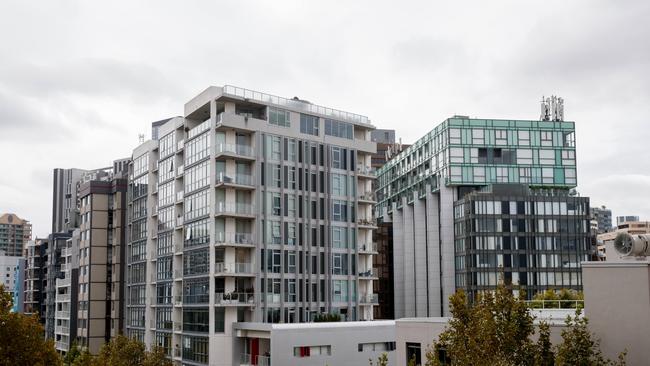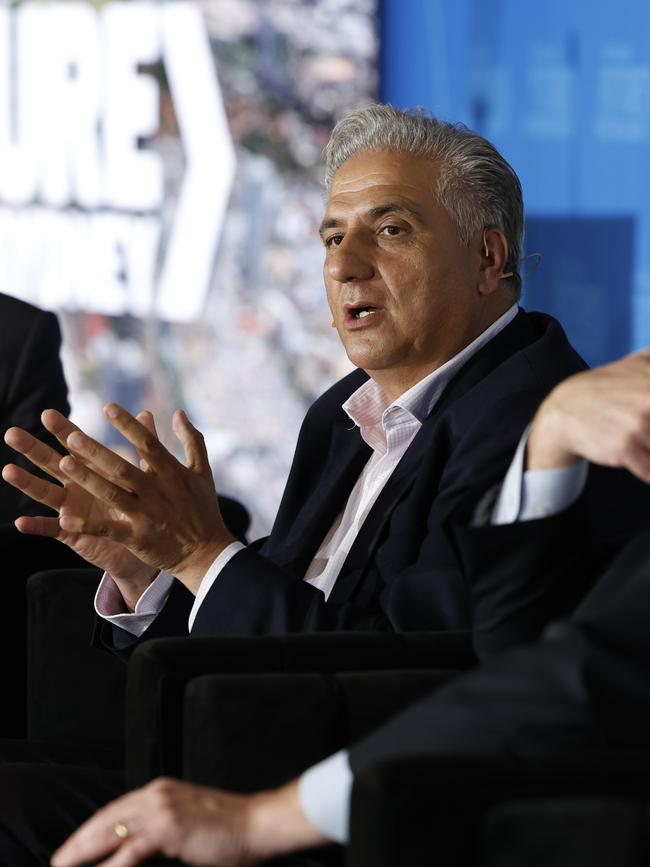Housing industry bosses say reduced taxes are needed to encourage Sydney development
Housing industry bosses are calling for tax reforms from the NSW Government in next month’s budget to stimulate building activity and ease the Harbour City’s alarming home supply shortage.
NSW
Don't miss out on the headlines from NSW. Followed categories will be added to My News.
Housing industry bosses are calling for tax reforms from the NSW Government in next month’s Budget to stimulate building activity and ease Sydney’s alarming home supply shortage.
A submission paper from the Housing Industry Association (HIA) NSW has yet to be finalised but is set to seek concessions ranging from reduced developer infrastructure contributions to payroll tax relief.
HIA NSW will also request a five-year exemption from the foreign investor surcharge on new homes to bring overseas dollars back into the market.
“We know there is foreign demand for off the plan apartments, so that would help pre-sales and get developments underway,” HIA NSW executive director Brad Armitage said.
“A key one for us is reducing infrastructure contributions because they are now prohibitive to new developments. On payroll tax, the exemption threshold for small businesses has not been raised for six years.
“Wages have gone up significantly, we’ve had CPI increases, and in the construction game your subcontractors are all small businesses, so they deserve some relief.”

HIA NSW President David Mann added: “Apart from alcohol and cigarettes, this is the most taxed sector in the country.”
Mann said in the lower-priced outer suburbs of Sydney developers face “an impossible task” to deliver new apartments en masse because taxes and levies – especially in greenfield areas – will wipe out profits.
He cited an HIA NSW feasibility study that looked at the construction of 440 new apartments on a two-hectare site at a height limit of 28 metres under the proposed rezoning of the Orchard Hills area near Penrith.

“Our numbers show if you sold them as 80 sqm two-bedroom apartments at $650,000 each – the current market value – you would lose $80 million on the project so what’s the point, it’s not viable,” Mann said.
The study showed the break-even point for the apartments would be $852,500 and to make a 20 per cent developer’s margin the sale price would need to reach $1,030,000.
“Everyone is in business to make money, no one is doing it for practice, and there’ll be no one building in some of these areas on the outskirts of Sydney unless they can actually turn a dollar,” Mann added.

“Mosman and Manly, those high value areas with established infrastructure, that’s where development can stack up.
“But in new areas where you have entry point prices and you’re paying for ‘last mile infrastructure’ services like sewer and water, it just keeps adding to costs.
“It’s a fact of life that in the past five years, taxes and charges have doubled, construction costs have escalated and more regulatory hurdles have been put in place. So we’re seeing more apartment builders leaving this space than entering it because it’s all too hard.”
The Centre for International Economics (CIE) released a report in March saying government taxes, regulatory costs and charges made up 38 per cent of new infill apartment prices in Sydney – an increase of almost 40 per cent since their previous research in 2019.
But Mann said developments in areas without existing infrastructure were hit even harder with contribution costs.
Fairfield Mayor Frank Carbone has expressed concerns at lack of fresh development in his council area and called for concessions to give battling families a shot at entering the real estate market.

“The State and Federal Governments need to stop putting their hands in the pockets of our children and first home buyers,” he said. “They need to stop taxing new homes. They need to give young families a chance to buy their first home.
“There is capacity for 15,000 to 20,000 new homes in Fairfield. Unfortunately it’s not viable for developers. The costs are too high. You’ve got costs of labour, costs of materials, and the costs of government taxes.
“So builders aren’t building because it’s too expensive, and people can’t afford to buy. It is governments that have put it out of reach and all they do is blame everyone else.”
Urban Taskforce Australia chief executive Tom Forrest, in a paper entitled What Makes Housing So Expensive, wrote: “Governments across Australia have relied on the property sector to deliver rivers of taxation revenue. (But) productivity in the home building sector is catastrophically low.”
Planning and Public Spaces Minister Paul Scully said the Minns Government was continuing to “improve and reform the planning system to support the delivery of more homes and jobs in NSW”.
“Thousands of first homebuyers have taken advantage of our changes to stamp duty thresholds … and there is strong growth in the number of development proposals … in metropolitan and regional areas that are coming into the planning system,” Mr Scully said.
Do you have a story for The Daily Telegraph? Message 0481 056 618 or email tips@dailytelegraph.com.au




